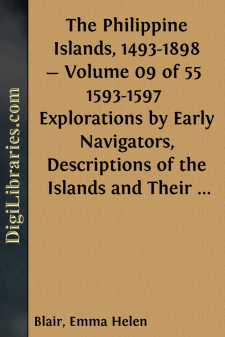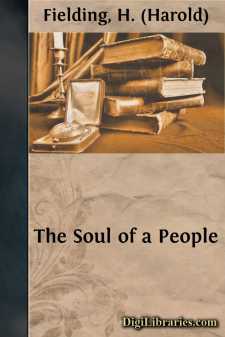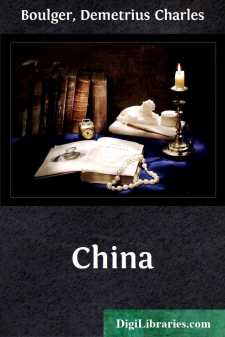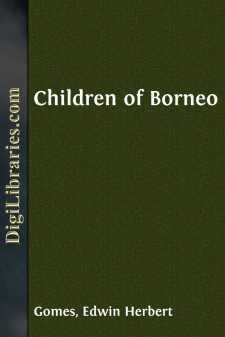History
- Africa 30
- Americas (North Central South West Indies) 50
- Ancient 68
- Asia
- Australia & New Zealand 8
- Canada 41
- Caribbean & West Indies 1
- Civilization 20
- Eastern Europe 12
- Europe 310
- Expeditions & Discoveries 60
- General 77
- Historical Geography 1
- Jewish 9
- Latin America 3
- Medieval 8
- Middle East 14
- Military 248
- Revolutionary 8
- Study & Teaching 5
- United States 353
- Western Europe 56
- World 13
Asia Books
Sort by:
by:
Emma Helen Blair
Preface Important events and changes occur during the four years included in the scope of this volume. The Audiencia is suppressed, and in its place is sent a royal governor; the instructions given to him embody many of the reforms demanded by the people through their envoy Sánchez. Extensive and dangerous conspiracies among the natives against the Spaniards are discovered, and severely punished....
more...
by:
Elizabeth Cooper
-Preface_. A writer on things Chinese was asked why one found so little writingupon the subject of the women of China. He stopped, looked puzzledfor a moment, then said, "The woman of China! One never hears aboutthem. I believe no one ever thinks about them, except perhaps thatthey are the mothers of the Chinese men!" Such is the usual attitude taken in regard to the woman of the...
more...
by:
George Lynch
INTRODUCTION There are few people in the world who have more opportunity for getting close to the hot, interesting things of one's time than the special correspondent of a great paper. He is enabled to see "the wheels go round;" has the chance of getting his knowledge at first hand. In stirring times the drama of life is to him like the first night of a play. There are no preconceived...
more...
by:
Emma Helen Blair
Report of the Spanish Council of State on Appointment of a Governor for the Philippines Sire: On the occasion of a letter written to your Majesty by Don Alonso Fajardo de Tenzá, governor and captain-general of the Filipinas Islands, and president of the royal Audiencia established therein, on the seventeenth of August of the past year 623, petitioning among other things for permission to come to...
more...
by:
Emma Helen Blair
Preface The events related in the present volume (1593–97) conclude the first quarter-century of the history of Manila as a Spanish settlement. That city, although small, is gaining in importance and prosperity; it is fairly well fortified, and its public institutions are increasing; it is now the seat of an archbishop, and three dioceses are formed to be under his care. Restless spirits among the...
more...
by:
Emma Helen Blair
Complaints Against the Archbishop Sire: Ever since I began to have dealings with the archbishop Don Fray Miguel de Benavides, and have recognized his temper, I have perceived the difficulties that he would cause me; accordingly, I have always acted with great moderation and care. But the occasions which he gives for such caution are so many that great patience is necessary to bear them; for he...
more...
CHAPTER I LIVING BELIEFS 'The observance of the law alone entitles to the right of belonging to my religion.'—Saying of the Buddha. For the first few years of my stay in Burma my life was so full of excitement that I had little care or time for any thought but of to-day. There was, first of all, my few months in Upper Burma in the King's time before the war, months which were full of...
more...
CHAPTER I THE EARLY AGES The Chinese are unquestionably the oldest nation in the world, and their history goes back to a period to which no prudent historian will attempt to give a precise date. They speak the language and observe the same social and political customs that they did several thousand years before the Christian era, and they are the only living representatives to-day of a people and...
more...
by:
Thomas Hodson
Preface. I can now, in my mind’s eye, see Chickka, the washerman, as if I had met him yesterday; and I can see the mud houses of Singonahully, the mud wall of the village, and the temple of Runga, as if they were all before me. Yet five and thirty years are passed and gone since the afternoon when, in quest of medical aid, I rode past the village, hoping yet to see it the abode of many follower’s...
more...
CHAPTER I Away down in the Indian Ocean there is a long chain of islands that stretches from Burmah to Australia. One of these is New Guinea which is the largest island in the world (leaving out Australia), and Borneo comes next in size. It is nearly four times as large as England. One quarter of it—the States of Sarawak and British North Borneo—is under British influence. The rest is all claimed...
more...











